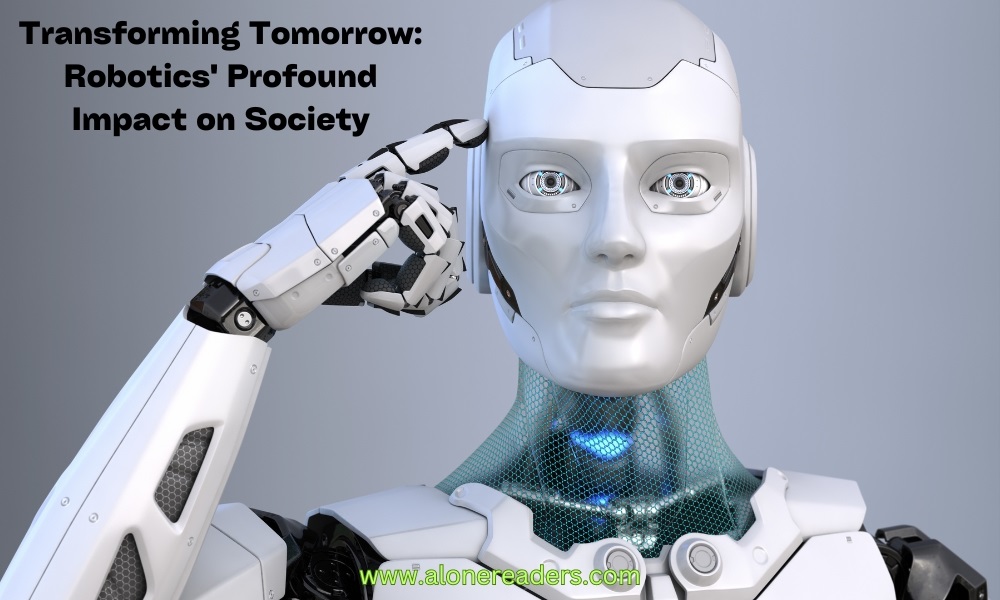Transforming Tomorrow: Robotics' Profound Impact on Society
- Last updated: April 01, 2024

Transforming Tomorrow: Robotics' Profound Impact on Society
In the dawn of the 21st century, robotics has emerged as a pivotal technology, influencing various aspects of human life. From manufacturing floors to domestic settings, robots are increasingly becoming integral parts of our society. This article delves into the multifaceted impacts of robotics, examining how they are reshaping our world.
The Revolution in Industry and Employment
Automation and Efficiency
The industrial sector has experienced a significant transformation due to robotics. Robots, known for their precision and efficiency, are employed in manufacturing, leading to an increase in production rates and a decrease in human errors. This surge in productivity is one of the primary benefits of robotics in industry.
Job Landscape Shifts
As robots take over repetitive and hazardous tasks, the job market is evolving. There's a growing demand for skilled professionals who can design, program, and maintain these machines. However, this shift raises concerns about job displacement in traditional roles, underscoring the need for workforce reskilling.
Healthcare Advancements Through Robotics
Precision in Surgeries
Robotics has made a foray into healthcare, notably revolutionizing surgeries. Surgical robots, like the da Vinci system, provide surgeons with unparalleled precision, reducing patient recovery time and minimizing risks associated with traditional surgical procedures.
Care and Assistance Robots
Beyond surgeries, robots are playing crucial roles in patient care and rehabilitation. Robots designed for companionship and assistance are increasingly being used in elder care and for individuals with disabilities, offering both physical support and emotional interaction.
The Ethical and Social Conundrums
Privacy and Surveillance Concerns
The rise of robotics has sparked debates over privacy and surveillance. Drones and surveillance robots raise questions about the extent to which monitoring should be allowed, balancing security needs against individual privacy rights.
Moral and Ethical Challenges
Robotics also poses moral dilemmas, especially in scenarios like autonomous vehicles making split-second decisions in life-threatening situations. As robots become more autonomous, determining responsibility and ethical guidelines becomes increasingly complex.
Educational Transformation
Robotics in Learning Environments
Robotics has a significant role in transforming education. Educational robots serve as interactive tools, making learning more engaging and hands-on. They help in teaching programming, engineering, and even soft skills like teamwork and problem-solving.
Preparing Future Generations
With robotics becoming a central part of our society, it's imperative that educational systems prepare students for a future where they coexist and collaborate with robots. This includes not just technical skills, but also an understanding of the ethical and social implications of robotics.
The Environmental and Sustainability Perspective
Robotics in Conservation and Research
Robots are being used in environmental conservation and research, undertaking tasks like ocean floor mapping and monitoring wildlife. These applications are crucial for understanding and protecting our environment, providing data that was previously unattainable.
Sustainable Practices and Robotics
Furthermore, robotics plays a role in promoting sustainable practices. From precision agriculture robots that optimize crop production to waste-sorting robots, these technological advancements contribute significantly to environmental sustainability.
Conclusion: Embracing the Robotic Future
The impact of robotics on society is profound and multifaceted. While they bring efficiency and innovation, they also pose ethical, social, and economic challenges that need addressing. It is essential for society to adapt to these changes, leveraging the benefits while mitigating the risks. As we march into the future, the synergy between humans and robots will undoubtedly shape the trajectory of our civilization, promising a transformed world replete with opportunities and challenges.







